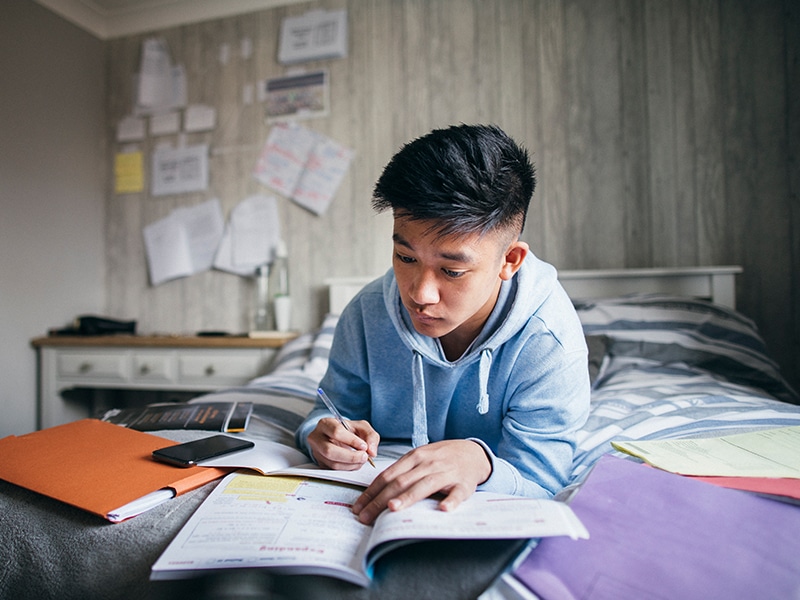COVID-19 has altered many people’s lives, but teens may feel the effects of the necessary adjustments more intensely than most. Here’s how you can help your teen adapt to quarantine or sheltering in place.
Teenagers are more likely to have trouble coping with stress related to the spread of COVID-19, according to the Centers for Disease Control and Prevention. Teens may struggle with stress because they’re still maturing emotionally and intellectually, they want more freedom and privacy in a time when it’s difficult to have either, and they’re upset about missing out on in-person classes, activities with friends, club or sporting events, and milestones such as prom and high school graduation.
There are a few ways you can help teenagers keep positive during this time at home.
J. Trever Rester, MD, internal medicine physician and pediatrician on the medical staff at Methodist Richardson Medical Center says maintaining a normal routine to the fullest extent possible is the best way to help your teen.
“This can be reassuring and promotes physical health,” he explains.
Dr. Rester says now would also be a good time to plan and perform new and old activities — such as learning a musical instrument or maintaining a family garden. A personal favorite of Dr. Rester’s is to try new recipes or learn to cook as a family, as well as to read a book.
Did you know?
Other ways Dr. Rester says will help teens adjust to quarantine or sheltering in place include:
- Enlist help with decision-making. Let your teen play a role in helping your family adjust to this new reality.
- Find ways for your teen to indulge his passion from a distance. If your teen loves art or nature, for example, check online to find museums, zoos, or conservation organizations that offer live chats or virtual courses.
- Give your teen space. Allowing your teen some privacy, especially when she’s calling or video chatting with friends, can help preserve harmony while your family is in close quarters.
- Lend an empathetic ear. Staying at home forces teens to give up the routine they’re familiar with, activities they’re invested in, and interactions with friends they enjoy. Anger and sadness are normal. It’s important to let your teen express those feelings without minimizing them.
Additionally, set a good example. Teens take emotional and behavioral cues from their parents. If you stay calm and model appropriate hygiene and social distancing, your teen is likely to follow suit. If your teens have questions or concerns, Dr. Rester says to make yourself available to listen and talk. Allow them to find reassurance in you.
Lastly, Dr. Rester suggests making the most out of the situation at hand.
“Utilize this time of being home more as a blessing to make and strengthen family memories and connections,” Dr. Rester explains.
“Good memories will be more likely to be made by parents or guardians who are intentional and make plans to create good experiences in a positive environment in the home.”
Should you relax your digital device rules? Digital devices play a central role in teenagers’ lives, and as they spend more time at home to avoid spreading or contracting COVID-19, computers, tablets, and smartphones will become vital tools for learning and socialization. What does that mean for the rules you may have set to prevent their spending too much time online? It’s important for teens’ mental health and happiness to maintain social connections with friends, and in a time of social distancing, calling, texting, video chatting, and interacting via social media are some of the best ways to do it. It’s OK to allow them more online time than usual but use your best judgment. If using digital devices starts to interfere with sleep, exercise, or learning, it may be time to scale back.

